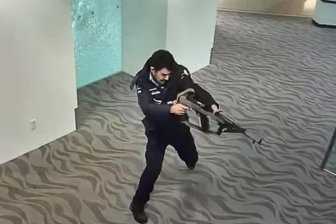Residential school survivors say the federal government is keeping the truth about those institutions in the dark by cutting back on funding for records and ground searches looking for unmarked graves of children who died at the schools.
More than 150,000 children were forced to attend residential schools, and many survivors detailed the horrific abuse they suffered to the Truth and Reconciliation Commission. An estimated 6,000 children died while attending the schools, although experts say the actual number could be much higher.
In 2021, after numerous First Nations reported locating what appeared to be human remains on the sites of former residential schools, Ottawa stepped in with more than $116 million to search for unmarked graves and to memorialize the children who died.
As of March 2024, the government had actually provided $216 million through 146 different funding agreements.
That ended up averaging about $71 million a year.
In the most recent budget, the government allocated $91 million over the next two years to continue to work to look for graves, or $45.5 million a year.

Laura Arndt, the lead for the Survivors’ Secretariat, a survivor-led organization seeking to document and uncover the truth of what happened at the Mohawk Institute in Brantford, Ont., criticized what she says cannot be characterized as anything but a funding cut.

Get daily National news
Get the day’s top news, political, economic, and current affairs headlines, delivered to your inbox once a day.
Communities and organizations have been investigating residential schools for decades, including through records. The more recent ground searches, using ground-penetrating radar, are being done in the hopes of finding and bringing the deceased home.
“We’re trying to uncover a history that’s 150 years old, and the limited funding we’ve been provided in three years is not doable,” Arndt said.
The Survivors Secretariat has indicated the change will have a dramatic impact on communities who have started their searches and those hoping to secure funding of their own. Communities and organizations were informed via a teleconference with federal government officials, and they say they had their microphones muted and reduced ability to push back on the cut.
“They’re waiting for us poor old residential school people to die,” said Roberta Hill, a survivor of the Mohawk Institute in Six Nations of the Grand River near Hamilton, Ont.
“Well, we’re not going anywhere — not yet, that I know of. I said I’ll live as long as I can because I want answers and I want the truth. There is no reconciliation — absolutely none — if you’re going to lie to us and do this to us.”
Over the summer, Crown-Indigenous Relations Minister Gary Anandasangaree reversed a decision to limit each individual community to $500,000 toward a search. Previously individual allotments were capped at $3 million, and Anandasangaree said that original cap would be restored.
Speaking on Parliament Hill during the Truth and Reconciliation Day ceremony Monday, Anandasangaree wouldn’t discuss the funding issue.
“I’ll be glad to address this in a more wholesome way later on what we have done,” he said in an interview. “And I’ve heard from survivors and I think we’ve done the right thing in terms of lifting the cap and we will continue to work with all those who are impacted. And I look forward to having this conversation at a later point.”

Scott Hamilton, a professor of anthropology at Lakehead University who has been involved with residential school investigations, said the federal government is obligated to provide communities with the supports needed to complete the work they’re doing.
“If we choose to gloss over, if we choose to ignore, if we continue to live in la-la-land that these terrible things didn’t happen, or they might not have been as bad as what was said, we’re kind of choosing to close our eyes and hum a song so we don’t have to bear witness to what happened — to confront the fact that terrible things were done in the name of our nation,” said Hamilton.
“An important part of Canadian legacy is to grapple with those dark, painful facts and try to heal from (and) try and seek reconciliation. But one doesn’t get reconciliation without acknowledgment of those painful truths.”
The Survivors Secretariat released a report Monday calling for 23 million documents to be released to the National Centre for
Truth and Reconciliation, along with RCMP records related to missing children and unmarked burials.
It also says Canada needs to provide stable, long-term funding for those investigations, and that it allow communities to determine what supports they need to carry out their work.
© 2024 The Canadian Press



